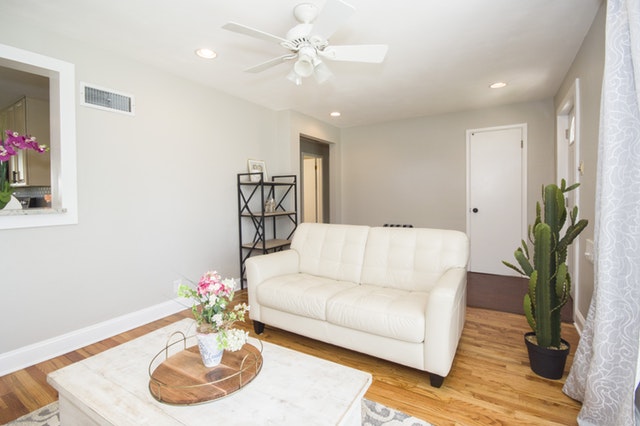 Buying a foreclosed home is easy, right? After all, they sell for pennies on the dollar, right? Well, that could be a false assumption. Buying a foreclosed property appears easy on TV, but in reality, it can be overwhelming.
Buying a foreclosed home is easy, right? After all, they sell for pennies on the dollar, right? Well, that could be a false assumption. Buying a foreclosed property appears easy on TV, but in reality, it can be overwhelming.
Foreclosure sales continue to decline in the market from 38.6 percent in 2011 to 14 percent in 2017 but ticking up a bit in 2018 according to Attom Data Solutions, a national property data company. As foreclosure sales drop, competition for these properties become stiffer and more complex. And as home prices increase in most cities, buyers often turn to foreclosures as affordable alternatives for landing their dream home
Foreclosures usually occur when homeowners can no longer pay their mortgages and the mortgagees seize the properties. Once former owners vacate the properties, lenders typically put it on sale at discounted price or auction to the highest bidder.
Foreclosures give homebuyers the opportunity to get great deals. While foreclosures can save you thousands of dollars, it may come with risks. Having a stomach of steel can help when pursuing a foreclosure.
To mitigate the risks involved, keep the following hacks and tricks in mind.
Budget Carefully
Don’t allow a small price tag to entice you into a quick deal. Ask yourself the following:
- Do you have sufficient dollars for extensive repairs?
- Do you have a team ready for any required repairs or are you handy at doing them yourself?
- Can you find a tenant if you intend to rent?
If you conduct thorough research, you’ll minimize the risks.
Get A Home Inspection
Though foreclosures are usually sold “as is”, you need to know the property deficiencies. The home seller can allow you to bring in a competent home inspector. Your inspector will give you a list of what the property lacks and the cost estimates needed to complete the renovations. You may even want to hire a home inspector after purchasing a foreclosure just to get a thorough review of the property.
Ask For Vacancy Duration
Ask how long the house remained vacant. In most cases, long vacancy means more damages. For example, plumbing seals may dry out, bugs get into the house and sewer gases back up.
Don’t Ignore The Landscaping
Neglected landscaping contribute to house deterioration. Tree seedlings grow roots into the foundation and vines crawl into the windows. Small trees can also mess up pavers, and dead branches can break and crash into the house.
Be Cautious With Auctions
Although auctions are common with foreclosures, it’s best to avoid them. And if you can’t, be vigilant when bidding. Competitive bidding can raise the value so high that you end up losing money after the cost of repairs.
It’s always best to work with your trusted local real estate professional to find foreclosure properties. They are experienced in determining the quality of the properties and can help you through the tenuous foreclosure purchase process.
 “Staging” a house means to prepare it for sale in ways that make it more attractive to potential buyers. Homeowners can do much of this staging work themselves and should get suggestions from their real estate agent. They can also hire a professional to do the staging work for them.
“Staging” a house means to prepare it for sale in ways that make it more attractive to potential buyers. Homeowners can do much of this staging work themselves and should get suggestions from their real estate agent. They can also hire a professional to do the staging work for them. Picking out a new flooring can be exciting. After all, as anyone knows, new flooring in a home or business property can completely change the entire atmosphere. A common question asked by commercial and residential property owners is “Should I go with laminate or hardwood flooring?”
Picking out a new flooring can be exciting. After all, as anyone knows, new flooring in a home or business property can completely change the entire atmosphere. A common question asked by commercial and residential property owners is “Should I go with laminate or hardwood flooring?” The real estate market is quite different from other markets and can be confusing for even the most experienced buyers and sellers. You will need the help of a real estate agent whether you are an experienced buyer or doing it for the first time.
The real estate market is quite different from other markets and can be confusing for even the most experienced buyers and sellers. You will need the help of a real estate agent whether you are an experienced buyer or doing it for the first time. Your home’s energy rating is an evaluation of your home’s overall energy efficiency. If your house’s rating is high, it means your potential for energy loss is also high. Bringing your rating numbers down means that your home is becoming more energy efficient.
Your home’s energy rating is an evaluation of your home’s overall energy efficiency. If your house’s rating is high, it means your potential for energy loss is also high. Bringing your rating numbers down means that your home is becoming more energy efficient.  Millennials face numerous challenges when buying their first homes. 55% of young adults between 25 and 34 years old don’t own homes as compared to 80% in 1967, according to data from the Census Bureau.
Millennials face numerous challenges when buying their first homes. 55% of young adults between 25 and 34 years old don’t own homes as compared to 80% in 1967, according to data from the Census Bureau.